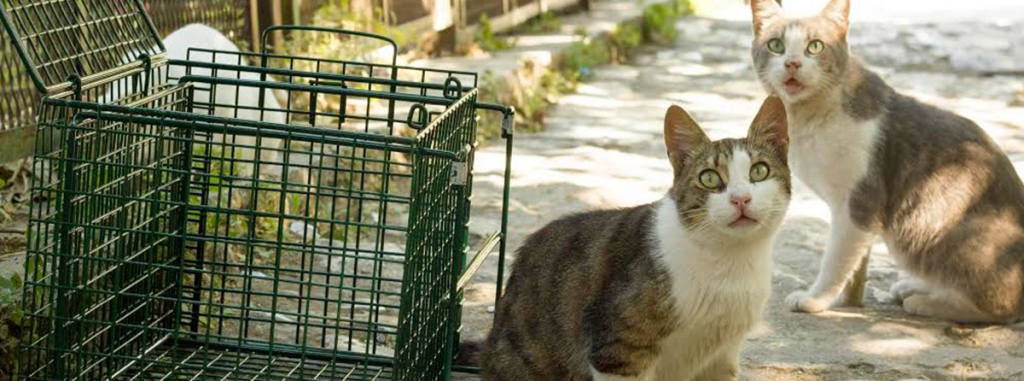Neutering Myths

This has been proven to be completely false. There are no health or veterinary benefits to allowing a female cat to have a litter before having her spayed. In fact, if you spay your female cat before she enters her first heat cycle you will dramatically reduce her chances of developing mammary tumours. Mammary tumours are the 3rd most common form of cancer affecting cats and are of serious concern. Spaying an adult female cat that has had a litter of kittens is a riskier and lengthier operation than surgery on a younger cat.
There is no evidence to support this belief. If you feed your cat a healthy balanced diet and they are able to exercise, like any other individual, they will not gain weight. As well as all the health benefits, neutering your cat will prevent them from changing their body shape in other ways. Non-neutered male cats develop large cheeks due to their glands, and large shoulders because of testosterone. A sticky black secretion containing pheromones will also appear around the base of their tail making the fur in this area greasy and matted.
In fact choosing not to neuter your cat can change their personality, for the worse. When non-neutered cats reach sexual maturity, their bodies are flooded with hormones which drastically alter their personality. Male cats can become aggressive, extremely territorial and develop behaviours such as smelly spraying, biting and excessive vocalisation. They will begin to wander the neighbourhood in search of mates and competition, which places them at a high risk of injury or contracting diseases, such as Feline Immunodeficiency Virus (FIV). Female cats that are not spayed will enter heat cycles where they are pursued by any males in the district, and yowl almost continuously and distressingly. Neutering or spaying your cat before they reach sexual maturity (at around 4 months of age) will prevent these antisocial behaviours from occurring. Fortunately, neutering an adult cat will also halt the production of sex hormones, and after a couple of weeks your cat will get back the personality you fell in love with.
Please see the health and behavioural benefits for male cats – this includes prevention of injuries, diseases such as FIV, and antisocial behaviour – which have already been listed on this page. It is also very important to realise that if your cat mates with a female cat the kittens will most likely be unwanted. Although you will not have direct financial or ‘hands on’ responsibility, you will be morally responsible (along with the owner of the non-spayed female) for the suffering which follows.
It is essential to prevent companion animals from breeding under the current circumstances. Every year in Greece tens of thousands of cats and dogs are destroyed or die on the streets, and until this tragedy has been addressed it is cruel and irresponsible to bring more animals into this world. If you are in doubt visit any shelter or street colony, and you will be confronted by dozens of unwanted, homeless animals. These animals will range from gorgeous kittens and puppies to healthy and affectionate adult cats and dogs, and just as quickly as these animals live and die their short, tragic lives, many more are produced to take their place.
As strange as it sounds, some men refuse to neuter male cats because they project feelings (and insecurities) about their own masculinity onto their pets. This ignores the fact that their cat will be at risk of sustaining injuries, developing health problems and contracting diseases. If you know a man who refuses to neuter their male cat and is beyond reasoning recommend that they consider purchasing Neuticles and remind them that real men don’t need the testicles of another animal to prove their masculinity or virility.
This is a myth spread by the ‘older generation’ of vets, and is something that veterinary students are now taught is false. It is safe, quick and beneficial for their health to spay cats once they have reached 3-4 months of age (or 2kg in weight). In fact, in the US and UK, cats are even spayed as young as 8 weeks of age, in a procedure referred to as ‘juvenile neutering’, performed using keyhole surgery with a small incision. The RSPCA, Animal Welfare League, Cat Protection and reputable rescue organizations all practice juvenile neutering.
Our vets here in Athens recommend spaying at 4 months old, an age at which kittens are reaching sexual maturity and facing their first oestrus. Nine Lives Greece is frequently contacted by people needing assistance because a cat they were feeding has become pregnant while they were waiting to have them spayed at 6 months, or has come into season at 4 months and is being pursued by all the neighbourhood tomcats; and our volunteers regularly pick up 5-month-old cats which are pregnant or have already given birth. If your vet has not been trained or is not willing to spay at 4 months of age, ring around to find a vet who has, or contact us for more details.

